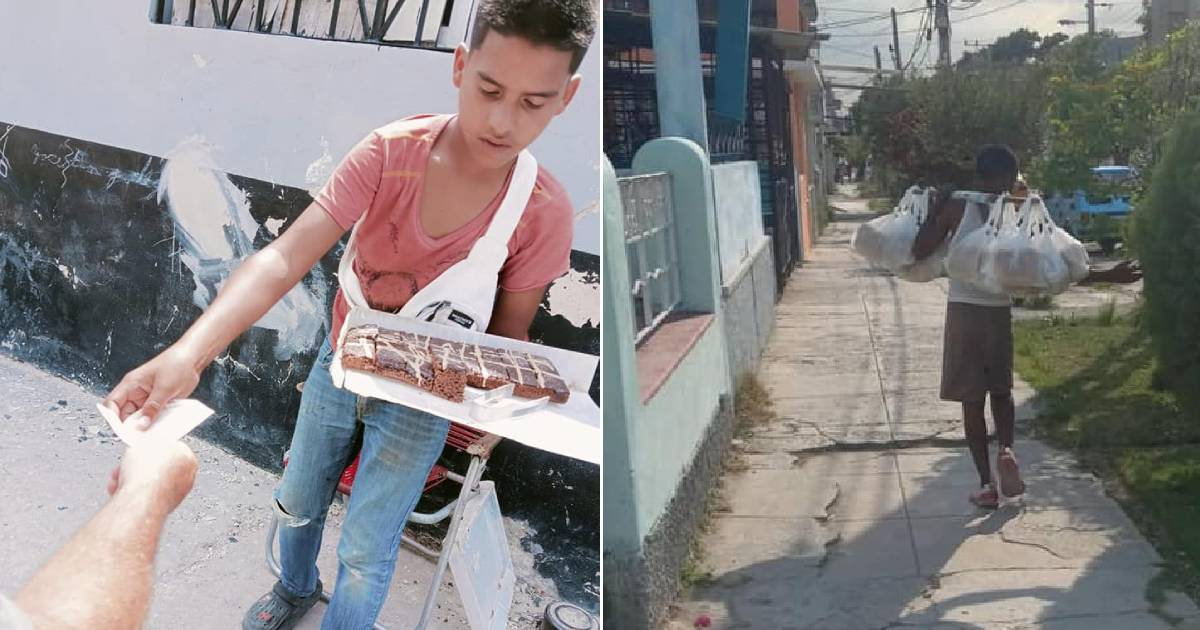The Cuban government acknowledged on Friday the growing problem of children and teenagers working in Cienfuegos, but entirely blamed the families, sidestepping its own responsibility for the social and economic crisis affecting the country.
The official newspaper 5 de Septiembre quoted Lieutenant Colonel Marilín Cuellar Valdivia, Head of the Ministry of the Interior's Juvenile Department in Cienfuegos, who did not hesitate to attack the families of these children and teenagers, stating that "in most cases, this is an activity encouraged or at least permitted by the adult relatives."
Criticism of Family Role
According to Cuellar, this situation, which constitutes a disciplinary issue, should not be seen as "something normal" and noted that it is more frequent in the popular councils of Caonao, Tulipán, and Junco Sur.
The news portal indicated that it is common to see children and teenagers selling various products, especially seasonal fruits like mangoes, avocados, and mamoncillos.
Regarding bathing areas such as beaches and rivers, the official website criticized the family role, pointing out the lack of supervision and care for minors, blaming them for the fatal incidents recorded in previous years.
Moreover, the authorities only mentioned that these incidents occurred because the minors were alone or, in some cases, accompanied by their parents but without effective control, without mentioning the mandatory presence of lifeguards in designated bathing areas.
Lieutenant Colonel Cuellar expressed concern about the presence of minors in recreational places until late at night and early morning hours without the company of adult family members.
According to her, this situation makes them vulnerable to becoming victims of various criminal acts or even committing social disciplinary issues themselves, such as smoking and consuming alcoholic beverages.
She mentioned the incident during the El Bebecito concert, where several minors were caught climbing the walls of Tropisur, demonstrating clear indiscipline.
She also blamed the family for the dangers children and teenagers face on public roads, riding bicycles, motorbikes, or animal-drawn carts without adult supervision, especially during the dangerous hours of dusk and night.
Additionally, she pointed out the risks associated with playing football or other sports in the streets, which not only obstructs traffic but also increases the likelihood of minors being hit by vehicles or other people getting injured.
Cuellar also highlighted the issue of teenagers aged 12 to 15 who run away from home, often due to mistreatment or dissatisfaction, and in most cases, these minors do not live with their parents.
Although she urged people to report these incidents quickly to facilitate the search, the article published by the official newspaper failed to point out the government's responsibility in these cases affecting children and teenagers.
Nonetheless, the news portal deemed it pertinent to recall that, legally, current Cuban laws, such as the Constitution, the Family Code, and the Criminal Code, clearly define the responsibility of adults regarding the comprehensive care of minors and establish the measures that can be applied to those who fail to fulfill this duty.
Ongoing Issue Across Cuba
The problem of children and teenagers working is neither new nor exclusive to the province of Cienfuegos. Two Cuban children were captured last May selling sweets to make a living in Havana, a scene that has become familiar in Cuba, where the government has historically boasted of having eradicated child labor.
In Cuba, although the law prohibits child labor and protects minors' rights, according to the Magna Carta and the Labor Code, the official press has had to acknowledge its existence in the country, affected by the greatest economic crisis in its history. An investigation conducted by the newspaper Sierra Maestra revealed cases of primary school students skipping classes to work. They arrive late or miss school to help their families, something the government criticized for decades, blaming capitalism and assuring that "in the Revolution, this doesn't happen."
Understanding the Child Labor Issue in Cuba
To provide further insight into the child labor problem in Cuba, here are some frequently asked questions and their answers:
What is the Cuban government's stance on child labor?
The Cuban government officially prohibits child labor under the Constitution and Labor Code. However, recent reports and investigations have revealed the presence of child labor due to the economic crisis.
Why are children and teenagers working in Cienfuegos?
Children and teenagers in Cienfuegos often work to support their families. The government blames the families for encouraging or permitting this activity, despite the broader social and economic issues at play.
What are the risks associated with child labor in Cuba?
Child labor exposes minors to various risks, including exploitation, accidents, and missing educational opportunities. It also makes them vulnerable to criminal activities and social indiscipline.
